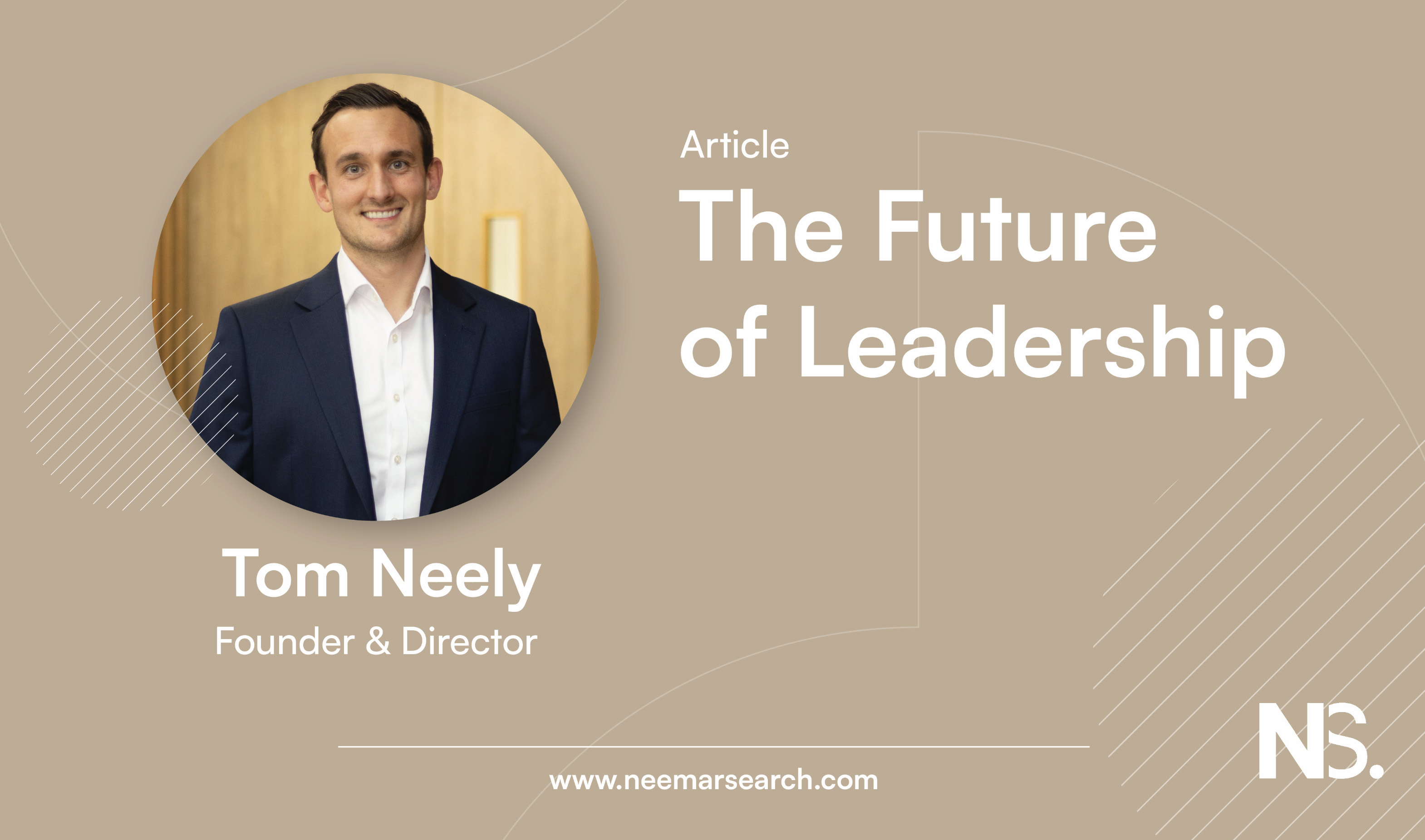
The Future of Leadership | Tom Neely
25 Apr, 20247 Mins
The subject of leadership capabilities and characteristics will no doubt continue to be a topic of debate for years to come as the sector seeks to understand exactly what it is that makes for the perfect leadership candidate. The market is full of assessments to try to test these capabilities, with a great deal of science behind them – some of it working very effectively.
I have been lucky enough to spend more than eleven years interviewing and assessing highly successful leaders along with interviewing high-performing Chief Executives on our Housing Collective podcast. Over this time, I have built a personal perspective on the standout capabilities of a great leader. In many cases these are interconnected behaviours, values, and learnt skills – isolating one is not always helpful. Whether all of these skills can be taught, however, is an ongoing discussion. It’s important to remember that while different technical skills may be useful in different industries, five key characteristics make great leaders stand out.
Future-focused: The ability to create a vision
In the same way that every story has a beginning, so every leadership journey must begin with a vision. Without that, you face being rudderless, pushed wherever the forces around take you.
Vision is the ability to define, with clarity, where you are going.It is important to consider how creating a vision shows up in practice, however. Being able to understand your environment, the challenges in the marketplace, and their impact on your organisation, all whilst maintaining a north star to guide you, is crucial. But we are not just talking about macro strategy here. Vision needs to be applied in the day-to-day, in the small moments, and the small patterns. Being able to notice those, and make sense of them, is hugely important when it comes to actually executing on your vision and making it happen.
In its current guise, does the sector help to develop and promote these skills? My view is that in many cases, it may actually dull them. There is a huge amount of noise damaging the ability of leaders to create a vision. So often, leaders end up in execution mode, sometimes forced to do what they have done before, without the opportunity to seek any creativity or guiding light.
Storytelling: The ability to communicate
Having a strong and clear vision is meaningless if you cannot translate it into a compelling story. Giving your people a north star and aligning them around a clear purpose is the quickest way to gain their buy-in, empower them, and allow them to thrive.
How we communicate, the cues that we give, and the language, energy, and consistency that we use are powerful tools. When not used correctly they can have a detrimental effect to the success of any Association.
Communication can also be just as much about how we listen to those around us. Are we engaged, and actively listening? What are people telling us through their behaviours, words, and sentiments? How can we tap into this, and recognise how it may influence us?
It is crucial that leaders remain intentional and deliberate with their communication, always tailoring it for their audience, and taking into account how it may be received. Communication is very much a learned skill – with coaching and practice, anyone can excel
Resilience: The ability to learn from setbacks
Resilience is somewhat of an overused word in modern society, but it matters because it is about the ability to bounce back from setbacks and advance through challenges. Many attribute this laser focus on resilience to the so-called VUCA world we are currently operating in, but is this really the case? Would it be a surprise if we discovered that by telling ourselves all the time that we are all overwhelmed and operating in a VUCA environment (as though that has never happened before) it actually has a detrimental effect on people – and doesn’t accurately capture what we mean by resilience.
Good leaders need to understand the world around them, make decisions based on their judgment, and show that they’re moving forwards. It’s not about only making the right decisions in times of uncertainty or volatility; it’s about consistently role-modelling the behaviour and leading by example. Using mistakes and setbacks as learning opportunities allows leaders to build not just their personal resilience, but also the resilience of their team.
Self-Awareness: The ability to understand your impact
Much is made of EQ and the need for people-centric leadership. That all starts with understanding ourselves better.
The importance of having a deep understanding of who you are, your strengths and weaknesses (and how to manage them), and the impact you have on others can never be overestimated as a leader. It is essential to be deliberate and intentional in your actions and interactions. Leading with empathy and putting yourself in others shoes is a crucial part of this experience.
It is also about being aware of what is influencing us, the opinions that we have, how we feel at any given moment, and what triggers us and why. If we are a reflection of those closest to us, then it is important to be careful to understand the impact that those people will have on us, both positive and negative. A great leader should manage their inputs to ensure that they have balance.
Many leaders claim to understand their impact, but truly great leaders can “feel” the room and respond to it. When you see this skill in a leader, it shines through. In my opinion, this kind of empathy is not something that you can learn – it is intrinsic to some people.
Responsible: The ability to take ownership
This is really about the sense of responsibility and ownership that a leader brings to what they do. It is about caring deeply and being committed – because people follow committed leaders. The power of being in the company of somebody who is “all in”, who cares deeply, and who always shows up, is infectious.
For me, this is the number one quality that I have seen show up as the decisive element in good leadership. It can also be a double edged sword, so those have a heightened sense of responsibility for their work and team need to be wary of this. It can consume leaders, creating destructive behaviours in a determination to contribute. Self-awareness and discipline need to be used to balance the chance of any negative impact to bring out the best of any leader. For me, a deep sense of responsibility is the ultimate underpinning to a leader who brings vision, communication, execution, resilience, and self-awareness. When these behaviours come together you have an incredible role model who creates a vision that others want to be a part of.


